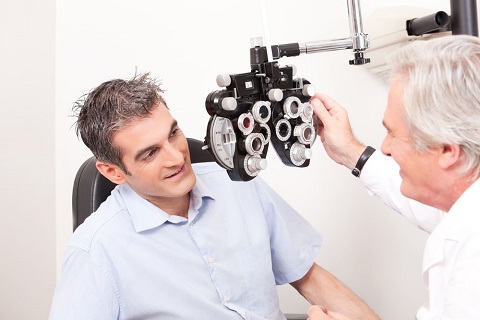
No responsible practicing ophthalmologist will ever recommend laser eye surgery in Orange County to anyone without conducting a comprehensive eye examination first. An experienced surgeon will put in the extra effort to ensure the safety of his patient above all else before and during the procedure. This is what separates skilled LASIK eye surgery providers in Orange County, CA from those who are only out to make a quick buck.
You may have to undergo many tests prior to the operation, but they are all equally important. They are designed, after all, to help your doctor determine if you are an ideal candidate. To help you prepare accordingly for your first appointment, here are a few things to expect during the initial evaluation.
Screening for Pre-Existing Eye Conditions
Apart from a brief interview regarding your medical history, your ophthalmologist will screen you for existing eye conditions. According to the U.S. Food and Drug Administration (FDA), some conditions will make you unfit for LASIK. These include uveitis, iritis, blepharitis, keratoconus, dry eye syndrome, glaucoma, cataracts, retinal abnormalities and high degree of refractive error. LASIK may not be as effective or safe for patients with such conditions.
Treating or Resolving Eye Conditions
In some cases, LASIK would be ideal for a patient were it not for a treatable, pre-existing condition, such as dry eye syndrome. If possible, your ophthalmologist will try to resolve the problem to make you a good candidate. For eyes that are not severely dry, your doctor may simply apply artificial tears before surgery. Another alternative would be prescribing a special eye drop to permanently cure dry eye syndrome. Only when the condition no longer puts the patient at risk during LASIK will your doctor greenlight the procedure.
Conducting a Series of Specialized Tests
Laser eye surgery requires optimal precision and accuracy, which is why trained ophthalmologists follow a strict set of protocols for pre-op evaluation. One of the most important tests you will be required to have is called corneal topography. This allows your doctor to have a 3D view of your cornea. During this test, specialized equipment will take measurements of the shape and thickness of your corneas. Light will be shone directly onto the surface of your eyes to create a map of the cornea’s curvature and highlight any irregularities as well.
Learning about what will occur during your initial consultation is well and good, but this should not be treated as a suitable substitute for a dialogue with a reputable ophthalmologist, like Dr. Ferzaad Moosa of Excel Laser Vision Institute. Make the most of your first visit by voicing out your concerns and discussing expectations with your doctor.




